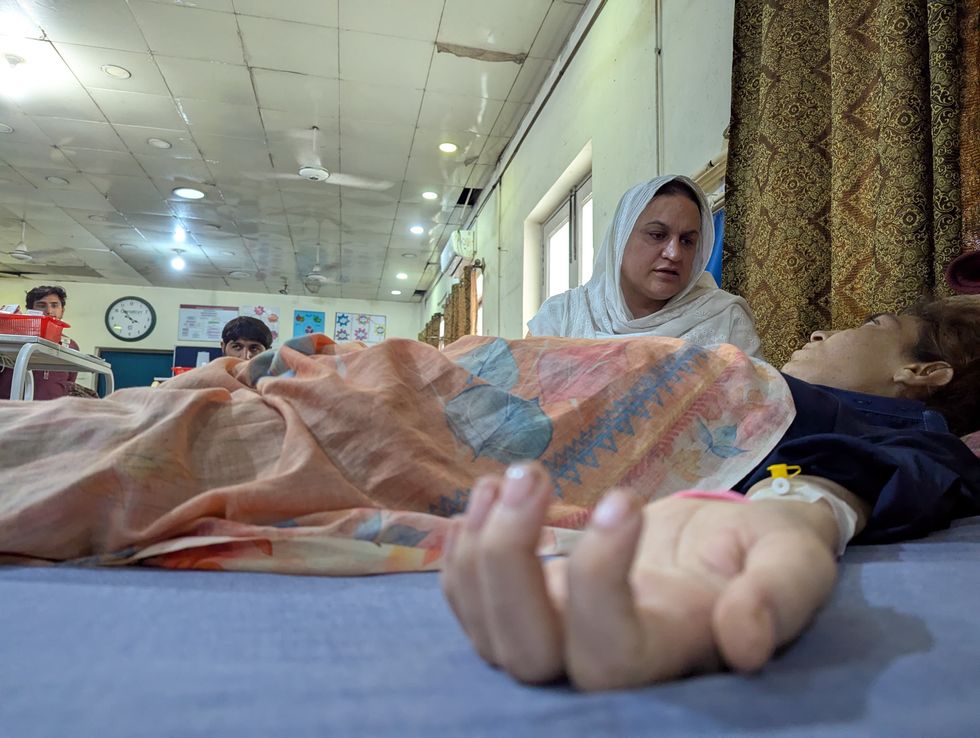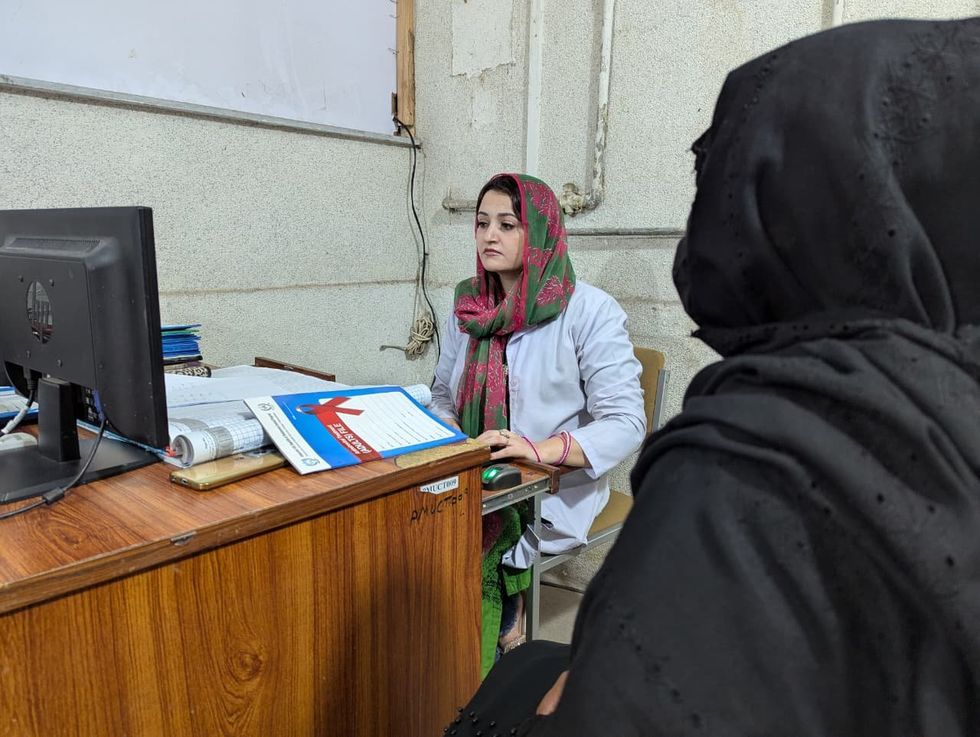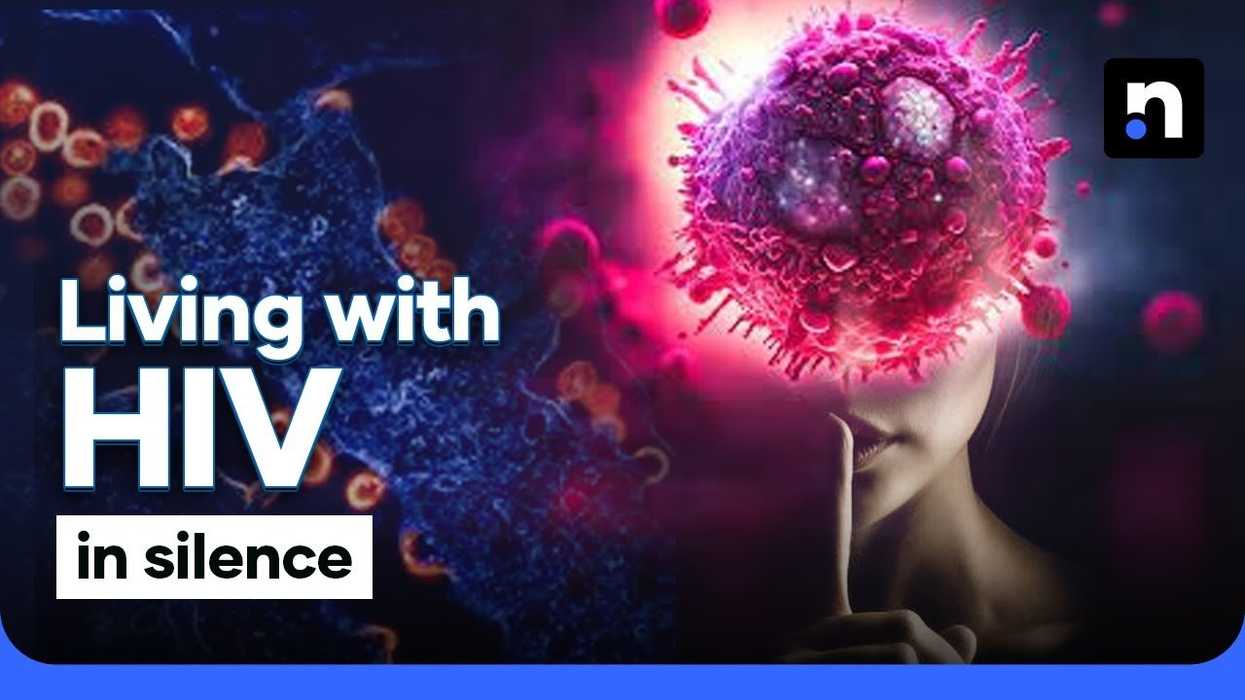Why a Pakistani woman hid her HIV diagnosis for decades
Official records show 9,209 cases, but experts estimate 39,000 infections in the northwestern KP province

Kamran Ali
Correspondent Nukta
Kamran Ali, a seasoned journalist from Khyber Pakhtunkhwa, Pakistan, has a decade of experience covering terrorism, human rights, politics, economy, climate change, culture, and sports. With an MS in Media Studies, he has worked across print, radio, TV, and digital media, producing investigative reports and co-hosting shows that highlight critical issues.
Stigma and misconceptions prevent many from getting tested or treated
Free treatment at 13 centers enables normal lifespan with medication
Spreads through blood transfusions, unsterilized equipment, not only sexually
“I carried the secret like a shadow. For one year, I could not tell my own husband I had HIV because the stigma was so strong,” says Palwasha*, her voice low but firm. “In that silence, all I could do was try to prepare his heart, to make him understand.”
That silence was the beginning of a battle the 49-year-old from Peshawar district has waged for three decades — not just against the virus, but against the fear that isolates those it touches.
Her fight is marked by a solemn ritual: every three months, she makes a journey to an HIV/AIDS center in Peshawar to collect her medication, a routine she has maintained since her youth.
“I have been living with HIV for 30 years,” she tells Nukta, her voice steady yet heavy with the weight of experience. “I had undergone a gallbladder surgery, and during a blood transfusion, I was infected with HIV,” she recalls.
Palwasha’s experience echoes the silent suffering of many across Pakistan, where stigma and misinformation surrounding HIV often inflict wounds deeper than the virus itself. “Because of the stigma, my in-laws still don’t know,” she admits quietly. “In my family, only my mother and sister are aware.”
Thousands suffer from HIV
Palwasha's story is far from unique. Chaahat*, a transgender woman from Malakand, lived with HIV for five years following her diagnosis. After weeks of battling the illness in hospital, she died just days ago.
Arzu Khan, Chaahat's guru (mentor) and provincial president of the transgender community, told Nukta that Chaahat's condition had improved significantly after beginning treatment. However, after she discontinued it for three years, her health deteriorated to a point where survival was no longer possible.

According to data obtained from the Integrated HIV Control Program (IHCP), there are currently 9,209 registered cases of HIV across Khyber Pakhtunkhwa (KP). These include 6,448 men, 2,119 women, 197 transgender persons, and 445 children. Since 2005, at least 1,658 registered HIV-positive patients have lost their lives in the province, the data reveals.
Speaking to Nukta, Jalal Khan, Monitoring Officer at IHCP, acknowledged that the actual number of HIV cases in KP is likely far higher than official figures suggest. Limited testing facilities and low public awareness, he explained, mean that many cases go undiagnosed.
“The program’s estimated figure is around 39,000, and it is likely to rise to 44,000 in the next years,” he said, adding that the number could increase even further “if we achieve the international standard of testing 95 per cent of the population.”
Social stigma
Palwasha said one of the toughest challenges she faces is the widespread misconception about the disease. “People think HIV only spreads through sex, so they look down on and disrespect those living with it” she said, explaining how this belief has kept her from speaking openly.
“During this time, I had children — and both my husband and children tested negative. If it really spread that way, why didn’t my husband get it?” she lamented.

Arzu stated that once word of Chaahat’s illness spread, she was ostracized and forced to leave the district. Even her own community, Khan said, refused to let her stay among them.
“Everyone assumed she was a sex worker, without knowing the real reasons behind her condition,” Arzoo added. The incident, she said, reflects the layers of stigma that continue to marginalize people living with HIV in Pakistan.
Causes behind HIV
Arzu acknowledged that while some transgender individuals engage in sex work, this should not lead to the assumption that all HIV transmissions within the community are sexually acquired.
She pointed to a less-discussed but significant pathway of transmission: the pursuit of gender affirmation and beauty in an unregulated and often hazardous informal sector.
“Transgender individuals often resort to various procedures to look feminine and beautiful, such as PRP injections, hair transplants, laser hair removal, and botox,” Khan explained. “These procedures, when performed with unsterilized equipment by untrained practitioners, are also major causes of HIV transmission.”
Medical experts confirm that transmission occurs through diverse pathways that extend far beyond sexual transmission, which drives much of the public stigma.
Dr Yaseen Khan, a professor at the HIV Centre at Lady Reading Hospital Peshawar, outlined the four primary causes of the virus's spread. “The main causes include sexual transmission, infected blood transfusions, mother-to-child transmission during birth or breastfeeding, and procedures performed with unsterilized equipment,” he stated.
Steps toward healing
Dr. Khan categorically labelled the belief that HIV is untreatable as “complete misinformation.” “It is a manageable condition through proper medication,” Dr. Khan stated.
He explained that patients follow a specific treatment plan, involving lifelong antiretroviral therapy, which suppresses the virus to undetectable levels. “If patients adhere to our plan and do not miss their medicine, they can live a lifespan as long as any normal person.”
Zupash Kiramat, who works with the Information Management System at IHCP, told Nukta that there are 13 HIV treatment centers in KP, established with the support of donors including the United Nations Development Program. These centers offer free screening, counselling, and treatment to patients.
“We never disclose patients’ identities, not even to their families,” she said, adding that in some cases, code names are used to ensure complete confidentiality.
Jalal Khan said that donors have decided to withdraw funding by 2030 and have recommended transitioning the project-based program to a self-sustainable model.
To ensure its continuation, the KP government has instructed officials to draft a PC-1 planning document so the initiative can be included in the Annual Development Program (ADP) for upcoming fiscal years.
“We aim to screen 95% of the population for HIV,” he said. “But awareness is essential to achieve this goal — and for that, community support is crucial.”
*Names changed to maintain privacy.








Comments
See what people are discussing